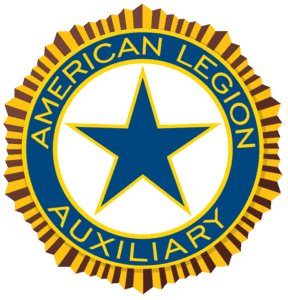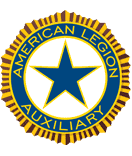Auxiliary Emergency Fund
The Auxiliary Emergency Fund (AEF) is a national grant assistance program that provides temporary emergency help to eligible members of the American Legion Auxiliary who have suffered a significant financial setback as the result of an act of nature or other personal crisis.
The AEF was established in 1969 with a bequest from the estate of Auxiliary member Helen Colby Small of Burlington, Wis. It continues today solely through generous donations from Auxiliary members.
Eligibility: Persons who have been members of the American Legion Auxiliary for at least the immediate past two consecutive years, AND whose current membership dues are paid at the time the emergency occurs (three consecutive years’ dues) may apply for assistance.
AEF grant applications are reviewed by the AEF Grant Committee on a case-by-case basis, and awards may be granted up to a maximum of $2,400. Grant funds may be used only for emergency shelter, food or utilities. AEF funds may not be used for medical expenses or debt such as that on credit cards.
To ensure the integrity of the program, the national AEF Grant Committee directs payments to a provider such as a mortgage or utility company. Educational grant payments are directed to the educational institution. An application is available on the AEF page at www.ALAforVeterans.org.
Familiarize each unit and department with what AEF can and cannot do, where to locate the current application, and how to apply.
~ Unit ~
- Have printed applications and AEF brochures available during unit meetings and at the local post.
Help the National Auxiliary Emergency Fund obtain donations by supporting department and unit fundraisers.
~ Unit ~
- Put an AEF donation can in your local post (visit www.ALAforVeterans.org for a free, downloadable can label). Solicit local businesses for monetary or in-kind donations to your unit for AEF.
- Schedule an annual “Members Helping Members” night at your local post. Not only is this a great time for an AEF fundraiser, but it gives you the opportunity to share information about what makes a member eligible to receive help from the AEF. Have membership applications available, and sign up new members during an event. Legion members might sign up eligible relatives in order to provide this protection for them. Prior to the event, be sure all unit members have read and are familiar with the AEF frequently asked questions as well as the criteria for assistance.
Community Service
 Making our communities better places in which to live is another core value put in action by American Legion Auxiliary members every day across the country. Whether hosting a standdown to bring vital health and support services to homeless veterans or coordinating a send-off or welcome-home event for a deployed military unit, Auxiliary members are continuously at work in their communities, demonstrating the compassion and heart we have for those who serve our country and give so much. Community Service projects focus on enhancing the quality of life for veterans and their families.
Making our communities better places in which to live is another core value put in action by American Legion Auxiliary members every day across the country. Whether hosting a standdown to bring vital health and support services to homeless veterans or coordinating a send-off or welcome-home event for a deployed military unit, Auxiliary members are continuously at work in their communities, demonstrating the compassion and heart we have for those who serve our country and give so much. Community Service projects focus on enhancing the quality of life for veterans and their families.
In recent years, the Auxiliary has partnered with the Corporation for National and Community Service to make the Martin Luther King Jr. holiday—the third Monday in January—“a day on, not a day off” for service. Units and departments are encouraged to plan special projects that focus on veterans, military families, or children as part of this national day of service.
Become visible within your community. Work with and invite other organizations to work on service projects to heighten awareness of the American Legion Auxiliary’s local efforts to support our veterans, servicemembers, their families and the community.
~ Unit ~
- Purchase shirts with the American Legion Auxiliary name or emblem for members to wear while they volunteer.
- Note: If your unit is ordering anything with the ALA name or emblem from a source other than Emblem Sales or your department, remember that a request first must be submitted through your department headquarters to National Headquarters for approval by the national secretary. Contact your department headquarters for more information on this process.
- Implement and promote the tips, ideas and strategies in the ALA Service Not Self Volunteer Toolbox to offer more well-rounded service projects. Topic areas include who and how your service helps; be a successful volunteer; be an effective volunteer manager; start serving; join a project, make a project and sponsor a project; and share your service.
- Organize and participate in service projects for veterans, servicemembers, their families and local community programs on ALA suggested days of service.
- Register service projects on websites, community forums and social media to attract other community members to participate in your service projects.
- Volunteer for local service projects and causes (walks, special events, etc.). Work with your post home to offer space and their participation in local service projects and causes.
- Sponsor and participate in activities at local libraries, senior citizen centers, assisted living centers, nursing homes, service projects and causes (walks, special events, etc.).
- Attend and represent the Auxiliary at special celebration events in the community such as holiday parades, grand openings of community facilities and community leader recognition ceremonies.
- Connect to and be supportive of ALA Call to Service Corps AmeriCorps members and members serving other AmeriCorps veteran and military family projects in their communities.
- Partner with local Meals on Wheels to deliver meals on days they are closed (i.e. Christmas and Thanksgiving).
Education
 The American Legion Auxiliary believes education is vital to democracy and that investing time and money to educate our youth is literally an investment in America’s future. Our Education program fosters learning for children in our own communities, with our main focus on the children of our military and veterans.
The American Legion Auxiliary believes education is vital to democracy and that investing time and money to educate our youth is literally an investment in America’s future. Our Education program fosters learning for children in our own communities, with our main focus on the children of our military and veterans.
We know the sacrifices of our veterans are the reason we live in freedom; easing the burden of the cost of their children’s education is one way we can express our gratitude to them. To that purpose, the Auxiliary supports a number of scholarship programs. These include the Children of Warriors National Presidents’ Scholarship educating Children of Warriors, awarded annually to 15 outstanding students who are the children of veterans; the Non-Traditional Student Scholarship, awarded annually to five students who are members of The American Legion, Auxiliary, or Sons of The American Legion; and the Spirit of Youth Scholarship, awarded annually to one Junior Auxiliary member in each of the Auxiliary’s five national divisions. Units and departments are encouraged to publicize the availability of these scholarship programs in their communities and to establish new scholarships at the local level.
Enhance respect for the sacrifices of our military heroes among schoolchildren by scheduling Veterans in Community School programs at local schools.
~ Unit ~
- Collaborate with your local American Legion post to present Veterans in Community Schools within your local schools.
- Promote your Veterans in Community Schools event through local media and on your own social media accounts.
Promote American Legion Auxiliary scholarships, and award local scholarships at the department and unit levels.
- Make a donation to American Legion Auxiliary education scholarship funds:
- Children of Warriors National Presidents’ Scholarship Fund
- Spirit of Youth Scholarship Fund
- Department, district or unit scholarships
~ Unit ~
- Assign a member to communicate with schools regarding scholarship applications.
- Create a Unit Scholarship Fund to award scholarships to local students.
- Refer to “How to Create a Unit Scholarship Fund”.
- Prepare a news release with scholarship information for local media and your post/unit newsletter.
- Form a committee to select scholarship winners.
- Publicize the winners of ALA scholarships at a school presentation and in the media.
Support Give 10 to Education, American Education Week and Teacher Appreciation Week.
~ Unit ~
- Participate in the Give 10 to Education program by soliciting items from members to distribute to the schools in your district.
- Contribute supplies to local classrooms.
- Participate in American Education Week. Remember to recognize all school personnel, not just teachers.
- Promote Teacher Appreciation Week by reaching out to teachers, and ask how your unit can enhance their school curriculum.
- Find out if there are any needy children, and figure out what resources your unit can provide to the student.
- Educate school administrators on how the American Legion Auxiliary can have a positive impact on students.
Assist and support veterans pursuing higher education and vocational education.
~ Unit ~
- Collaborate with a campus student veterans group at colleges and universities in your community.
- Arrange for your post home to be available for off-campus events/chapter meetings.
- Provide information/handouts to members on organizing and delivering presentations on career and life skills topics to student veterans.
- Promote events through local media and your own social media accounts.
- Encourage members to sign up to receive The American Legion’s Legislative Action Alerts, and support the alerts regarding the GI Bill.
Assist and support military children with educational opportunities.
~ Unit ~
- Provide your local school with a copy of the Educator’s Guide to the Military Child During Deployment: www2.ed.gov/about/offices/list/os/homefront/homefront.pdf
- Inform schools of a free tutoring website for military children: www.tutor.com/military
- Provide information on the ALA Children of Warriors National Presidents’ Scholarship
History
 The History Committee preserves, displays and shares the history of the American Legion Auxiliary. The heart of the Auxiliary is in its unique records, items that our officers, members, directors, employees, and volunteers have donated, produced and compiled over the years. They provide unique testimony to the achievements of the organization, stimulate pride and enthusiasm among our members, and are invaluable to society by serving as informative and educational resources to a variety of potential users.
The History Committee preserves, displays and shares the history of the American Legion Auxiliary. The heart of the Auxiliary is in its unique records, items that our officers, members, directors, employees, and volunteers have donated, produced and compiled over the years. They provide unique testimony to the achievements of the organization, stimulate pride and enthusiasm among our members, and are invaluable to society by serving as informative and educational resources to a variety of potential users.
The heart of any organization’s history is in its records – items that officers, members, directors, staff, and volunteers have produced and compiled over the years. They provide unique testimony to the achievements of an organization. Records also contribute in other ways:
- Members are able to look back and learn what efforts were successful, or unsuccessful, and why. Understanding the missteps as well as the achievements can assist in determining a future strategy
- Exhibiting materials stimulates enthusiasm and encourages members to maintain the organization’s standards and promote its future. Pride in the organization has a direct correlation to motivating the current membership to bring in new members, achieve more goals, create a sense of strength and conviction while developing leaders
- Maintaining and preserving our records are invaluable to society by serving as informative and educational resources to a variety of potential users. In other words, an organization benefits itself and the public by preserving its records and making them available for use by everyone inside and outside the organization. The ALA history is contained in artifacts, our documents, newspaper articles, publications, meeting minutes, photos, newsletters, written histories, etc. We do this to honor those members who have made differences in our organization at all levels. Additionally, history allows us to build a stronger organization based upon those experiences. The Cavalcade of Memories museum, as well as the library and archives located at ALA National Headquarters, serve as a resource for our members, volunteers, staff, and the general public.
If you currently have a History/Cavalcade committee, mirror the efforts of National Headquarters to promote your history.
~ Unit ~
- Appoint a History/Cavalcade Committee chairman. Invite members and units to participate.
- Post your unit history on the Legion’s Centennial Celebration webpage at http://centennial.legion.org/
- Involve your Junior members in your activities, helping them earn the History patch.
- Participate in the Members Remember project (see Resources).
- Create displays that are attractive, interesting, and relevant.
- Highlight historical/important/interesting events in your unit/department.
- Include memorabilia of your honorary Junior presidents.
- Use new technology to create and maintain digital images and records. Be sure to make more than one digital copy and store them in different places.
- Make an inventory of your entire collection. This includes your organizational documents, written histories, scrapbooks, etc. Be sure to include information such as who donated the item and when.
- Periodically, feature a historical item or write an article about an important time in the unit’s/department’s history for your newsletter.
- Attend local workshops to learn preservation and conservation methods.
- Partner with local museums, historical societies, public libraries, or local merchants for consulting and displaying.
- Ask members to consider donating or loaning important items they may have.
If you do not currently have a History/Cavalcade committee and/or a Cavalcade of Memories Museum, initiate the project.
~ Unit ~
- Your history is in more places than just artifacts. It is in your meeting minutes, governing documents, newspaper articles, photos, etc. Set up a system as to how these will be kept.
- Make sure you initiate a record management program. Review the records management policy sample in the Department Operations Guide to see which records you are mandated to keep permanently.
- If you have no room to keep these items, contact a local historical society, state library, or university to see if they can keep them for you.
Become visible throughout your community and let them know the ALA’s history and contributions to the community, state, nation, and the world.
~ Unit ~
- Partner with local museums, historical societies, public libraries, or university archives for consulting, displaying, and preservation advice. If there is no space available for your collection, determine if one of the above organizations may be interested in sharing some of their space for your collection.
- Invite the community and members to tour the area, familiarizing themselves with the organization’s history and accomplishments.
Juniors
 Engaging the next generation to become members in the American Legion Auxiliary is the important purpose of the Junior Activities program.
Engaging the next generation to become members in the American Legion Auxiliary is the important purpose of the Junior Activities program.
Junior membership is open to girls from birth through age 17.
The Junior Activities program prepares girls under the age of 18 to become active adult members of the organization by providing positive volunteer experiences that instill the ideals of the Auxiliary. These girls develop leadership skills while having fun and hopefully becoming the future leaders of our organization.
Juniors are members of the Auxiliary who are organized as a committee of a unit. Juniors are not a separate Auxiliary organization. Junior members conduct their own meetings and perform their own special activities. Junior members plan their own community service projects, along with supporting projects sponsored by the Auxiliary and The American Legion Family.
Connecting with our Junior members and involving them in worthwhile activities that support our mission are the best ways to ensure the continuation of the Auxiliary for as long as there are veterans to serve.
Increase Junior membership.
~ Unit / Department ~
- Organize an active Juniors group. Give the Junior Activities chairman a budget to work with and space to hold meetings and fundraisers.
- Continually ask members to sign up their eligible daughters, granddaughters and great-granddaughters.
- Include information on Junior membership and activities in monthly newsletters.
- Include information on Junior membership in renewal notices.
Engage Juniors in programs of the American Legion Auxiliary.
~ Unit / Department ~
- Support and assist your Junior Activities chairman. Give her a budget to work with, space for meetings and fundraisers and be flexible with your activities so that Juniors can be involved. Provide her with an updated copy of the Junior Activities Handbook, which can be purchased from Emblem Sales or downloaded from the Junior Member Activities page in the Members Only section at www.ALAforVeterans.org.
- Post Junior activities on your unit department Facebook page with approval from parents and Junior member.
- Encourage older Juniors to become mentors to younger Juniors.
Make Junior meetings fun and informative.
~ Unit ~
- Give your Juniors a place to display their crafts or artwork.
- Help your Junior Activities Chairman find places to distribute the cards and crafts made by Juniors.
- Offer to help during Junior meetings.
Promote and encourage Junior participation in the Patch Program.
~ Unit ~
- Encourage Juniors to participate in the Patch Program.
- Encourage use of electronic patches on Juniors’ social media sites.
- Give Junior members the opportunity to work on requirements for patches at unit functions.
Leadership
 The American Legion Auxiliary is an organization that provides women of all ages, Junior and adult members, the opportunity to develop and hone their leadership skills. Our organization depends upon an ever-emerging stream of competent new leaders, trained and guided by experienced ones, to assume leadership within the Auxiliary and advance its mission long into the future.
The American Legion Auxiliary is an organization that provides women of all ages, Junior and adult members, the opportunity to develop and hone their leadership skills. Our organization depends upon an ever-emerging stream of competent new leaders, trained and guided by experienced ones, to assume leadership within the Auxiliary and advance its mission long into the future.
The Auxiliary offers a variety of opportunities for members to serve in leadership roles, from chairing a short-term community service project at the unit level to running for a national office.
Learn about and promote participation in the ALA Academy, which was developed as a result of the ALA Centennial Strategic Plan.
~ Unit ~
- Get to know the members of your unit. Help them identify the skills they can put to use in service to our veterans. Not all leaders have titles.
- Survey members to identify their interests and skills. Match projects based on individual member’s strengths.
- Develop a plan to incorporate at least one aspect of leadership learning, monthly or quarterly, at meetings.
- Hold a workshop/brunch focusing on preparation of reports and applying for awards.
- Provide the ALA pin to new members.
- Purchase a Unit Guidebook to share among members at meetings and encourage them to go online to download information.
- Identify individuals willing to assist members who wish to acquire or strengthen computer skills in order to communicate via the internet. • Identify individuals who lack the ability to communicate via the internet and ensure their inclusion in all unit and department communications.
- Participate in the ALA Academy as a unit.
Enhance leaders’ knowledge about ALA history, programs and organization.
~ Unit ~
- Initiate new members. Offer every new member an orientation packet.
- Offer an ALA information refresher course for all members.
- Encourage members to take ALA 101, a Course on our History and Legacy at www.ALAforVeterans.org under Meetings/Trainings | Online Training | ALA Academy.
- Recognize members who have completed the course either in a meeting or via public relations.
- Encourage members to participate in Mission Training or other national event.
Encourage the use of ALA reference documents and materials, such as the Unit Guide Book, Unit, Department, and National Constitution & Bylaws, Department Operations Guide, ALA Girls State Program Guide, and the national website listing of previous annual reports, to include the Centennial Strategic Plan initiatives.
~ Unit ~
- Set aside a time to discuss important ALA documents at unit meetings and develop a committee to address changes in procedures based upon a review of the referenced documents.
- Develop a plan to assist Junior members in learning about the referenced documents.
- Utilizing available materials, collectively develop a unit plan for projects on which your unit wishes to work.
- Hold a workshop to explain unit Constitution & Bylaws, Standing Rules, how the unit finances are structured, how the budget is planned, and how to write meeting minutes.
- Set aside a “show me where it’s printed” at meetings where members can ask why something is done the way it is or where in the governing documents it says we have to do it this way.
- Ask members to review the Unit Guide Book, Unit Constitution & Bylaws, Department Constitution & Bylaws and National Constitution & Bylaws noting things they don’t understand or find puzzling and address what comes from the discussion by documenting the results. Set aside time to answer any questions that arise from any discussions on ALA documents. Follow guidelines on www.ALAforVeterans.org.
Offer a mentoring program, utilizing the knowledge and experiences of members that have served as leaders beyond the unit level.
~ Unit ~
- Use positive, experienced members to train and guide new members.
- Encourage members to volunteer to train/guide new members.
- Encourage members to become “experts” in some areas so that they can become the unit mentor in that area.
- Discover potential leaders and talent within your unit by collecting a unit survey form from every member.
Legislative
Every day, hundreds of thousands of troops are fighting for our freedom across the globe. At the Auxiliary, we never stop thinking about what they face while deployed and what they will need when they return home. As advocates for our veterans, we encourage our members to contact their elected officials by phone, email or letter to implore them to keep the needs and sacrifices of our troops and their families front and center as they go about their legislative work on behalf of their constituents – that’s all of us!
The American Legion Auxiliary supports the legislative priorities adopted by The American Legion. The American Legion’s Legislative Division in Washington D.C. keeps abreast of current legislation relating to veterans’ benefits, national security, and children and youth. Auxiliary members are encouraged to subscribe to The Dispatch, published by The American Legion to keep The Legion Family aware of legislative issues and the official positions of The American Legion on those issues.
American Legion Auxiliary members work to keep veterans’ issues in front of legislators, strengthening our mission to serve veterans, the military and their families.
Each year, the Auxiliary convenes its Washington DC Conference in conjunction with The American Legion’s annual meeting in our nation’s capital to review The American Legion’s legislative priorities and advise members how to be better advocates for those issues with their own state’s Congressional legislators. Armed with information and enthusiasm, Auxiliary members “take to The Hill” to make their voices heard. The Legislative program periodically provides members with specific reasons to contact their legislators and provides them with summaries about issues of importance to our veterans.
While we may think that one voice may not make a difference on its own, that one voice added to the voice of others with the same goals and sentiments quickly becomes a collective power of influence that can impact the decisions of our elected officials. Joining together, Auxiliary members can and do make a difference when they advocate for veterans, the military and their families.
Encourage and empower members to be more knowledgeable to take action on The American Legion’s legislative priorities.
~ Unit ~
- Order and distribute the ALA Legislative Advocacy Guide from your department headquarters and distribute to members.
- Hold a unit meeting to go over the steps outlined by the ALA Legislative Advocacy Guide and discuss the legislative priorities.
- Invite a staff member of your U.S. representative and/or senator to a unit meeting so he/she can explain the best way to contact the official.
- Include legislative priorities in unit communications (social media, newsletters).
- Work with your Legion counterpart to make arrangements for Legion Family members to meet with respective Congressional delegation while on recess and in home districts.
- Choose a different legislative priority each month and allow time at each unit meeting for members to draft letters and communicate the importance of legislation related to veterans and their families.
- Watch for Legislative Action Alerts for any pressing priority. Go to https://www.votervoice.net/AmericanLegion/home to sign up for the alerts and make direct contact with lawmakers to advance American Legion priorities.
- Invite your department chairman to a unit meeting to explain how the department initiates legislative advocacy and how each unit can play a role.
- Work with your Legion Family to host a “Meet the Candidate” night.
- Make veterans/military issues the primary topic for discussion.
Membership
 As the world’s largest women’s patriotic service organization, the strength and influence of the American Legion Auxiliary is derived from its members. The Membership Committee works to ensure the future growth and prosperity of the organization by partnering with units, departments, and divisions to develop strategies to retain current members, recruit new ones, and engage all in mission-related activities. Current members renew their memberships when they believe the Auxiliary continues to offer them something of value for their lives.
As the world’s largest women’s patriotic service organization, the strength and influence of the American Legion Auxiliary is derived from its members. The Membership Committee works to ensure the future growth and prosperity of the organization by partnering with units, departments, and divisions to develop strategies to retain current members, recruit new ones, and engage all in mission-related activities. Current members renew their memberships when they believe the Auxiliary continues to offer them something of value for their lives.
By honoring our veterans and military through meaningful service, the American Legion Auxiliary will grow membership by our centennial anniversary. In order to grow the organization, we must let members know that they are the Auxiliary’s most valuable asset. Note: Our centennial anniversary will be celebrated during the 2019-2020 administrative year.
Enhance Member Experience
~ Units ~
- Retain all current members.
- What is a member in good standing? A member who is current with annual dues is a member in good standing. A member failing to pay annual dues by January 31 of the current membership year, shall be classed as delinquent and shall be suspended from all membership privileges.
- Unit, department and national leaders “Lead by Example” date: In the spirit of goodwill, the National Membership Committee urges all members who hold an elected or appointed position on the unit, department or national level to have their 2017 dues paid by September 1, 2016. Rational: Members follow leaders’ examples. Paying your dues early encourages others to do the same, giving you the rest of the year to concentrate on recruitment and Auxiliary programs.
- What is the value of a volunteer’s time? The time Auxiliary members volunteer is invaluable. In 2015, it was valued at $3.1 billion!
- To enhance a member’s volunteer contributions, offer ideas and opportunities in which members can support and deliver the Auxiliary’s mission. Examples for members: Volunteer at a VA Medical Center serving as veterans’ escorts to appointments, participate in a stand down to provide necessities for homeless veterans, mentor military children with the big brother/big sister concept.
- Recognize all members for any and all contributions — volunteering, serving as a chairman or officer, preparing food, organizing events, being a mentor to new members, contacting other members to renew, being a good example of Service Not Self, etc.
- Share member tools.
- Help members set up a user profile on the national website, www.ALAforVeterans.org, so that they can access the “Members Only” section and take advantage of all the tips and tools available.
- Inform members of member benefits and discounts available.
- Rid units/departments of member discrimination. (Goal 1 & 2)
- Ensure a positive experience for all members.
- Be welcoming, kind and respectful to members of all ages and backgrounds.
- Ask for new ideas and be open to them. Encourage personal contact between members of the unit. Demonstrate Service Not Self in all activities and interactions with others. Realize that not all members will attend meetings, and be respectful of their choice.
- Create meaningful participation.
- Hold regular information sessions to refresh members on ALA programs.
- Ask members to participate in programs they are passionate about.
- Establish a membership committee or team to support efforts throughout the department.
- Deploy active and consistent communication with units and districts/counties.
- Share contact information of committee/team with units.
- Use membership tools, available at www.ALAforVeterans.org, and ensure all units have access to all membership resources.
- Utilize your committee/team by giving them an assignment to make your program a success.
- Challenge members to help recruit members using “You Plus One, New or Renew.” Offer a small incentive for achieving the challenge.
Reach Out to Former Members
~ Units ~
- Unpaid Roster (information on members who have not paid dues since 2014).
- Reach out to former members: Set up a committee to establish a phone bank of members who will call former members. Meet periodically to make calls – monthly, quarterly, semi-annually. Develop a script to identify reasons for not renewing and what would cause the former member to consider rejoining. A sample phone script is included in the “How to hold a revitalization event or participate in TAL District Revitalizations” how to sheet. Send follow-up letters to those contacted, thanking them for taking the time to talk with you. Send letters to those you were unable to reach (see “How to hold a revitalization event or participate in TAL District Revitalizations” for a sample letter to former members.)
- Share former members’ feedback with the unit; determine what the unit might need to do differently to retain all members.
Attract New Members
~ Units ~
- Ensure a positive new-member experience.
- Personally contact a new member shortly after she joins.
- Provide a personalized welcome letter from the unit president or membership chairman. Also send a New Member Kit, available at www.ALAforVeterans.org, and personalize it for your unit and department. See “Suggested Additions to New Member Kit” to help create a complete new member packet.
- Find out how a new member wants to be involved and which volunteer activities might best suit her skills and interests. Utilize the interest form provided in the Leadership Programs Action Plan.
- Offer a variety of volunteer opportunities in which new members can participate, at times convenient to them, to support and deliver the Auxiliary’s mission. See the ALA Service Not Self Volunteer Toolbox at www.ALAforVeterans.org for tips, ideas and strategies on how to be a better volunteer.
- Be welcoming, kind and respectful to persons of all ages and backgrounds.
- Do not expect all new members to attend regular meetings; be grateful for whatever way she wants to participate, even if only to pay her dues. • Assign a “big sister” or mentor to each new member.
- Increase the ALA’s visibility in the community.
- Increase community involvement by using ALA programs that encourage responsible, active citizenship supporting our military servicemembers and their families.
- Engage other community-based organizations in ALA projects such as welcomehome/deployment events, support of military families and providing services that may include plumbing, carpentry, childcare, etc., for families of those deployed.
- Volunteer at schools, giving flag demonstrations and serving as mentors, with a special emphasis on military children and the issues they face with deployments and transfers. Contact JROTC leaders to assist with projects.
- Encourage Junior members to recruit their eligible friends and relatives.
- Identify recruitment target groups such as women veterans, military families, and relatives of American Legion members, ALA Girls State alumnae and local colleges.
- Ensure the ALA is appealing to new members.
- Exhibit Service Not Self in all activities and interaction with others.
- Create a significant membership experience for Junior members. Encourage Junior members to attend the senior meeting to share their vision of the unit. Encourage struggling units to elect Junior members to positions that don’t incur significant liability risks. Examples include: Chaplain, Sgt.-At-Arms, and Historian.
Understand and Respect Member Rights
~ Units ~
- Membership dues – members can pay dues in one of the following ways:
- Directly to the appropriate member in their unit
- Via the renewal notice sent by National Headquarters
- Via www.ALAforVeterans.org
- Effective with the 2016 membership year, members have the option to renew their dues online.
- Membership cannot be withheld from a member who chooses to pay her dues online.
- Once a member has paid her current year’s dues, regardless of payment method, she is a member in good standing and entitled to all rights and privileges of membership.
- Units have a legal and fiduciary responsibility to process a member’s dues (new or renewal) in a timely manner. Failure to do so is a violation of the members’ rights and due process. Dues received by the unit should be transmitted to your department once a month (minimum).
- Membership cards:
- Membership cards are provided by the national organization and shipped to departments to distribute to their units.
- Units must provide to members their membership card as soon as payment is received.
- Units must provide membership cards to members who renew online as soon as the unit becomes aware that the member has paid, either by notification from their department or, for units having ALAMIS access, via the “Unit Dues Paid Online” report which is available 24/7.
National Security
By supporting activities that address the practical and emotional well-being of military service members and their families, the Auxiliary’s National Security program hopes to ease the worries of those deployed so that they can focus on the monumental task of protecting our country. Auxiliary members step up and reach out to care for military families in very practical ways, such as assisting with their needs for child care and lawn work or by providing a listening ear to a stressed out spouse.
Local Auxiliary units often collaborate with Yellow Ribbon Reintegration Program, Operation Homefront, Operation Comfort Warriors, Heroes to Hometowns, USO affiliates, and ROTC/JROTC units as a means to care for our active duty military when serving, hospitalized, in transition, and as they return to civilian life.
Honoring the Troops
Display Blue Star Banners in the window to show that someone in the home is serving in the U.S. Armed Forces. Purchase banners for the families of deployed service-members as a gesture of support. Offer help to families displaying banners Honor those still missing with a POW/MIA Remembrance Service.
We host programs recommended by the Department of Homeland Security that assist members and communities in preparing for and/or responding to natural or man made disasters.
Welcome-Home Events
Our members do helpful things such as collecting coupons and sending them to overseas commissaries, hosting warm send-off and welcome-home events for our troops, providing service members with pocket flags, and showing the gratitude of our nation by providing military families with Blue Star and Gold Star Banners. How to Plan a Send-Off or Welcome-Home Event.
POW/MIA Remembrance Services
The American Legion Family is dedicated to ensuring that America’s POW/MIAs be honored and recognized, not just memorialized. Legion efforts focus on the need to account as fully as possible for those still missing, alive or dead. An important way all Legion Family members create awareness and remembrance for this initiative is through conducting POW/MIA remembrance services at unit meetings and public events. Strong, united support by all Legion Family members is crucial to bringing all of our heroes home. How to Plan a POW/MIA Remembrance Service.
Community Emergency Response Team
Auxiliary members also assist our communities in times of natural and manmade disasters through Community Emergency Response Team (CERT) courses. These trainings prepare members to act as an emergency response resource in times of natural disasters such as floods, hurricanes, and blizzards, as well as during man made disasters. The Auxiliary’s National Security program works collaboratively with the FEMA Individual and Community Preparedness Division, in keeping with a standing agreement.
Ensuring that America’s POW/MIAs be honored and recognized
The American Legion Family is dedicated to ensuring that America’s POW/MIAs be honored and recognized, not just memorialized. Legion efforts focus on the need to account as fully as possible for those still missing, alive or dead. An important way all Legion Family members create awareness and remembrance for this initiative is through conducting POW/MIA remembrance services at unit meetings and public events. Strong, united support by all Legion Family members is crucial to bringing all of our heroes home.
Past Presidents Parley
The Past Presidents Parley is a forum that brings together the experience of our former presidents and utilizes their expertise in active service to the American Legion Auxiliary. Women who have been president of a unit, department, or the national organization are encouraged to contribute to the Auxiliary as members of the Past Presidents Parley. These leaders share their wisdom and provide ongoing mentorship to empower and bolster the Auxiliary’s present leaders, ensuring the continuity and strength of the organization at all levels.
The Past Presidents Parley recognizes and honors:
- Women veterans
- Women currently serving in the military
- Outstanding unit members who do the hard work of service
Promote mentoring opportunities of unit members. As former leaders, past presidents at all levels are encouraged to continue their support to the organization by accepting responsibility to contribute their experience, knowledge and wisdom. As ambassadors for the organization, there is much information to share in achieving a stronger organization, at each level, by sustaining growth through positive actions.
~ Unit ~
- Form a unit Past Presidents Parley
- Encourage past presidents to continue providing support through the process of sharing ‘best practices’ with members.
Promote and submit nominations for the Unit Member of the Year Award. This award recognizes the contributions made by a valued unit member. Select one member to compete for department recognition by researching the criteria within your department and making a nomination; honor her within your department. Also honor the member in her unit for significant contributions made to the unit. Encourage other units to participate. All Unit Members of the Year are recognized at national convention.
~ Unit ~
- Select one member to compete for the department Unit Member of the Year award by researching the criteria within your department and personally making a nomination.
- Honor her within the unit.
Public Relations
 An organized communication network is critical for the public to become aware of the American Legion Auxiliary’s timeless mission, the many programs in place to advance our mission, and how the hardworking members of the world’s largest women’s patriotic service organization make a difference in the lives of our veterans, our military and their families. The Auxiliary’s growth depends on strong grassroots public relations efforts. The Public Relations program works collaboratively at all levels – unit, department, and national – to positively promote and advance the objectives and programs of the Auxiliary to our membership and the public at large.
An organized communication network is critical for the public to become aware of the American Legion Auxiliary’s timeless mission, the many programs in place to advance our mission, and how the hardworking members of the world’s largest women’s patriotic service organization make a difference in the lives of our veterans, our military and their families. The Auxiliary’s growth depends on strong grassroots public relations efforts. The Public Relations program works collaboratively at all levels – unit, department, and national – to positively promote and advance the objectives and programs of the Auxiliary to our membership and the public at large.
Help Spread the Word!
- Encourage everyone in your local unit to sign up to receive ALA eNews.
- Offer to send all the email addresses of your unit members to National Headquarters.
- Enlist the help of your Public Relations Committee to create a website for your unit.
- Tell a story to everyone you meet about what your Auxiliary unit is doing right now to help veterans, the military and their families.
- Purchase a gift subscription to Auxiliary magazine for your doctor’s office, health club, or hair salon.
- Connect with us on: American Legion Auxiliary “National” Facebook and on ALA Oregon Facebook.
- Follow us on Twitter.
Public Relations Toolkit
Whether you’re trying to obtain media coverage for a big event, announce a special occasion, recruit new volunteers or promote our cause, it’s important to have the right tools for the job and to know how to use them. Resources in the Public Relations Toolkit include a sample script when calling potential volunteers or members, sample news releases and media alerts, how to involve a new member at an event and more.
Parts of the Public Relations Toolkit were developed by Publicis Indianapolis, the professional PR firm leading the charge for our public awareness campaign. Although these tools were developed for the campaign test markets, they apply widely to all units, districts and departments. Please take advantage of the wealth of resources inside this document.


